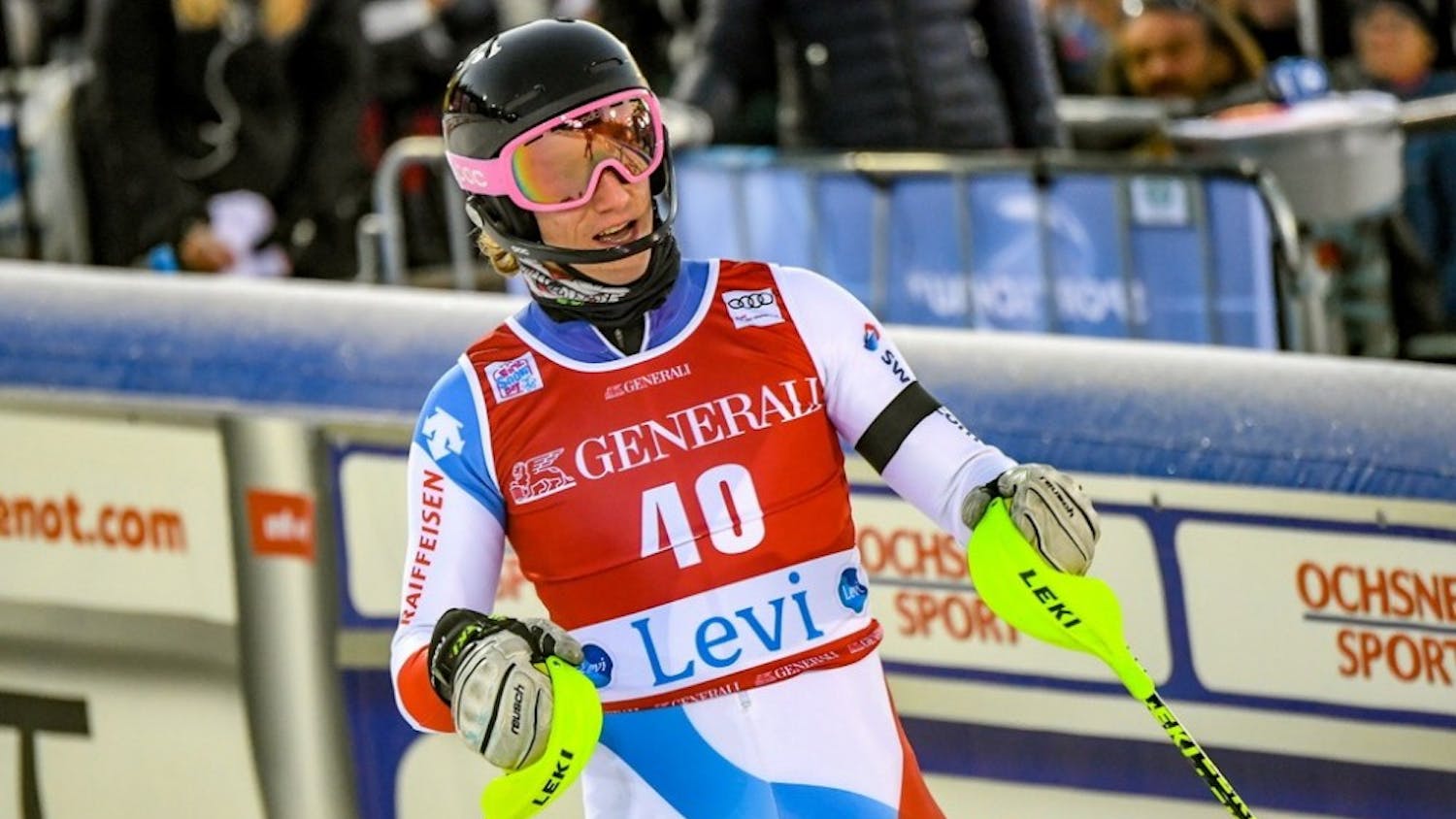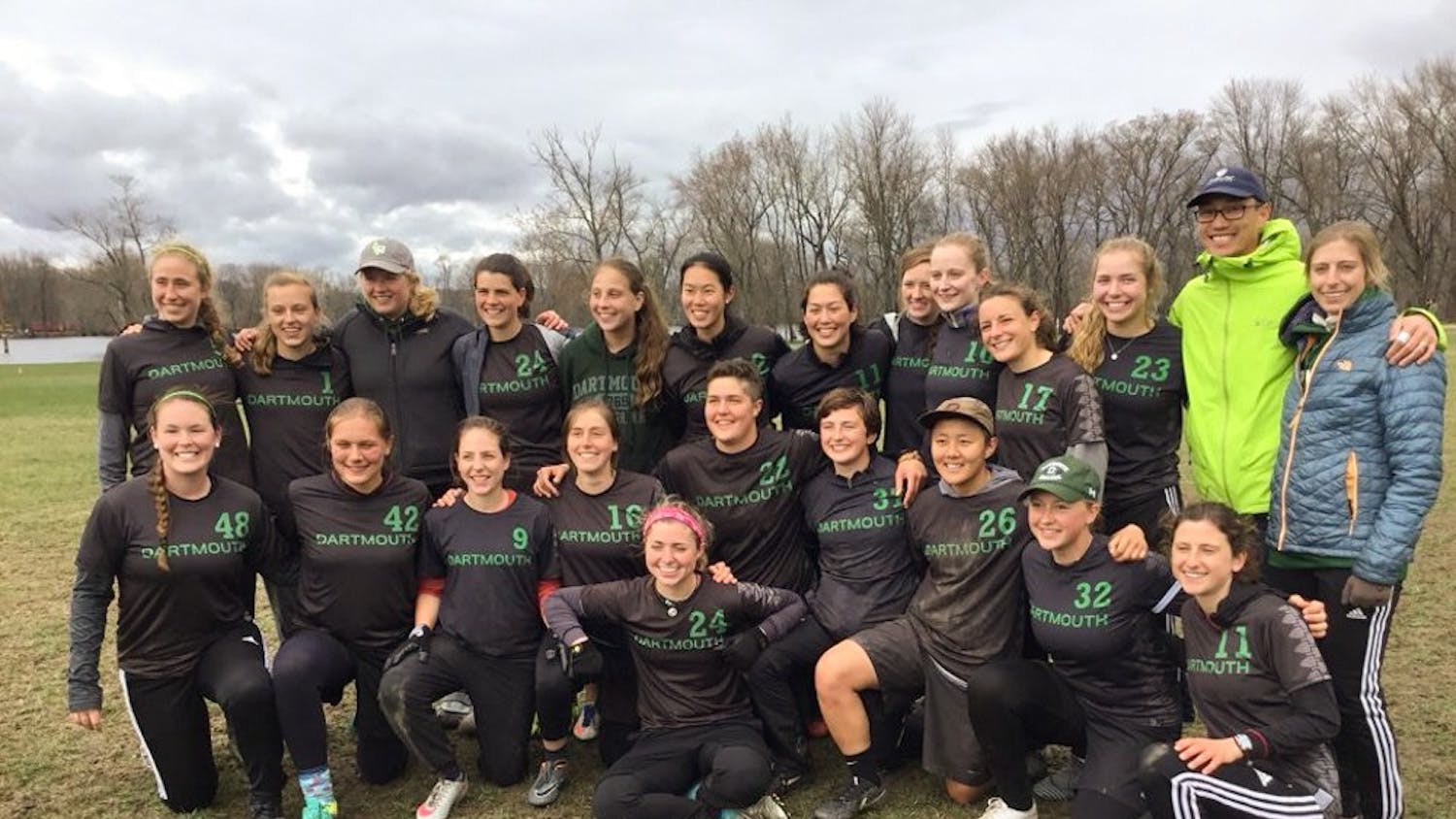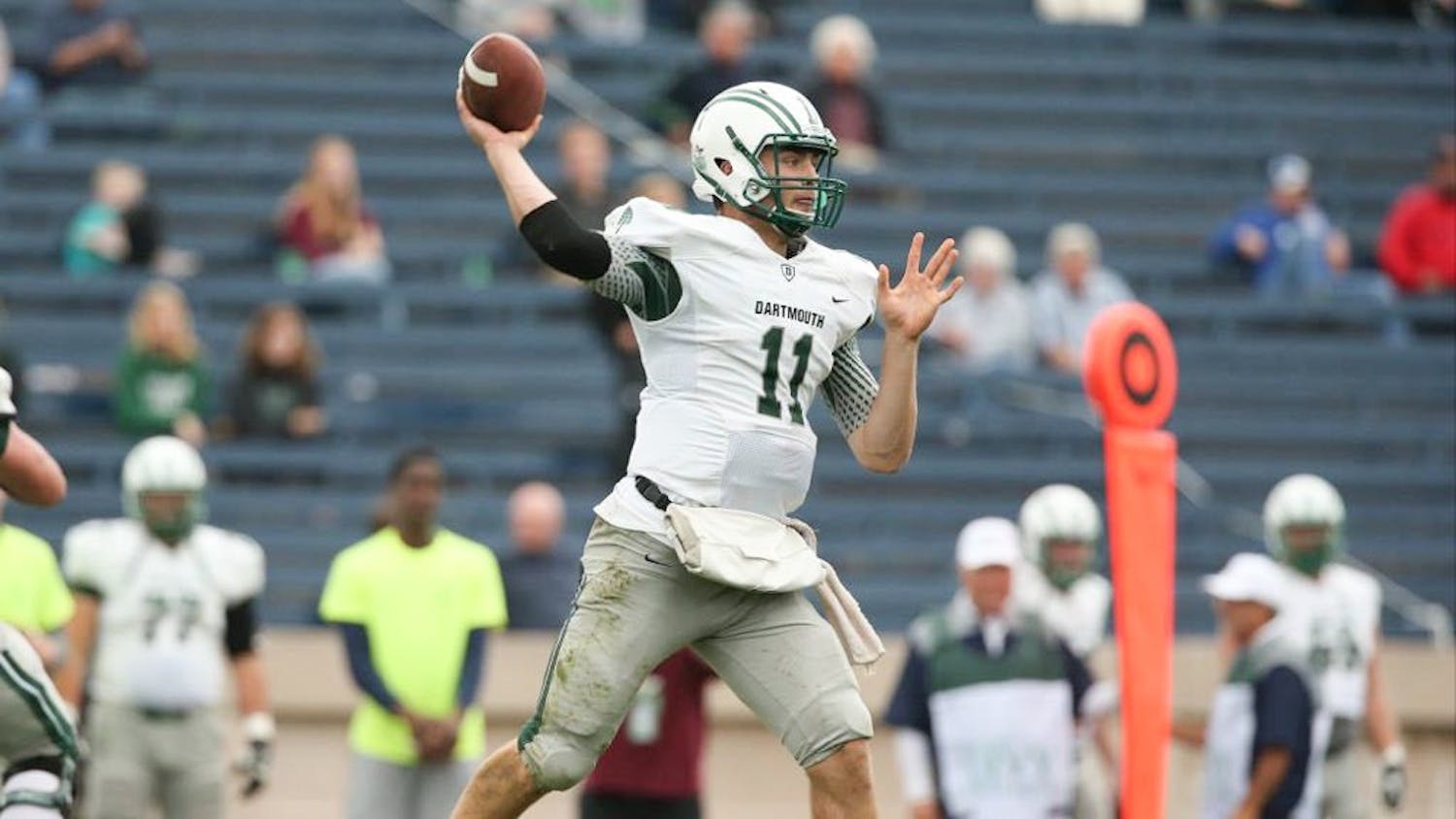On Friday, Cleveland Browns chief strategy officer Paul DePodesta visited Dartmouth to speak to College President Phil Hanlon and government and quantitative social sciences professor Michael Herron’s class, QSS 30.01, “Sports Analytics,” and the sports analytics club. DePodesta gained notoriety after the publication of Michael Lewis’ best-selling book, “Moneyball,” which was later adapted into a popular motion picture. “Moneyball” details how Oakland Athletics general manager Billy Beane and DePodesta, portrayed by Jonah Hill in the movie, used sports analytics to propel the team to a record-breaking winning streak and the 2002 American League Championship Series. DePodesta spoke with The Dartmouth about “Moneyball” and analytics.
How did you become interested in sports analytics? What inspired you to develop your first algorithm?
PD: I played football and baseball in college — not terribly well, but I loved both games and wanted to find a way to continue. I knew it wasn’t going to be as a player, so I looked into a bunch of different avenues, including coaching. I really thought I would become a football coach, and my career started in football — my first job out of school was in the Canadian Football League. But then I got this internship with the Cleveland Indians and it felt like I had hit the lottery — they had just been in the World Series, and I had a chance to be a part of the organization. I was actually just driving the van at spring training — it wasn’t very high-level, but it gave me a chance to be exposed to all these different people.
In terms of actually taking the next leap into analytics, that had really never been in my mind. Analytics, back then, didn’t exist. It wasn’t a thing within sports, there were no analysts at teams. After a year with the Indians, I became the advance scout for our major league team, which is the person who watches your opponents before you play them and writes the scouting report on them — how to pitch to this hitter, what to expect from the opposing manager in different situations, etc. It’s sort of competitive intelligence. I was encouraged over spring training to write some mock advance reports, but after that first game at spring training, I remember going back to my office and thinking, “I am wholly unqualified to do this job.” I was in a bit of a panic, like, “What am I going to do? I can’t see everything these other scouts see who’ve been in the game for 25 years, I have nowhere near the library of players in my head, I can’t see all the nuance that they grasp.” I was concerned about how I was going to finish this assignment, but I realized that I didn’t have to tell the players what to do, like, “Hey, you should throw this guy high fastballs from two strikes.” What I could do is just report what happened objectively — when other teams have thrown high fastballs with two strikes, this guy is one-for-20. That got me to start diving into the data, because I wanted my reports to be as objective as possible. Because the reality was, why should they be listening to a 23-year-old who never played in the big leagues? So, I really just became a provider of factual information.
As I got deeper into the data, I realized, there’s a lot of really rich information here, and it grew from there. When I got to Oakland, they encouraged me to run down that road as fast as I could and we started having success, which just heightened our enthusiasm for that approach. But I have to say, it was largely accidental and certainly not premeditated.
Baseball is ideal for what you do because of the sheer volume of data available. What has it been like to switch to football and have less data to work with?
PD: They have different challenges. In baseball, the good news was we had over one hundred years’ worth of data. The bad news was, that data wasn’t exactly what we would’ve wanted, had we designed it ourselves. There was a lot of data that wasn’t that relevant, and there were things we thought would be particularly relevant that we didn’t have. In some respects, we had to upend conventional thought because this data had been in place for so long and people assigned certain weight to different statistics. Football is different — we haven’t had data for a hundred years, there aren’t as many things to upend, but we have to create data from scratch. Nowadays, every NFL player has a GPS sewn into their shoulder pads. We started getting that data in April 2018, but the data set is absolutely enormous — even for one play, it’s an incredible amount of data. So now the challenge is, how do you manage all this data, and how do you pull insights from it that are actionable for your organization.
You’re famous because of “Moneyball.” How have the book and the movie impacted your career?
PD: Early on, it actually created some real challenges for me, both personally and professionally. It’s hard when someone else’s account of your life precedes you in every setting, so when you go to meet someone new — a potential employer, a new player, a new associate — they already have a very clear vision in mind of who you are because they read a book or saw a movie. That’s challenging, especially because this wasn’t a documentary — the characters, especially in the movie, become almost caricatures in order to tell a more compelling story. In some cases, they make us look better than we really are, or smarter than we really are, and in other cases, not as much. That was a challenge. On the other hand, it’s been incredibly gratifying because I’ve gotten to meet people, be exposed to companies, industries — really highly accomplished individuals — and learn from all these things. I would’ve never had those opportunities had it not been for “Moneyball.” It’s a bit of a mix, but at the end of the day it’s been a real blessing because of the opportunities that it’s provided.
How can what you do apply outside of sports?
PD: It’s funny, before the book came out, Billy Beane and I got a copy of it, and we read it from cover to cover and were both mortified, like, “This is going to change our lives and people are going to know all these secrets about us.” It was difficult to grasp. But one thing Billy said was, “My only hope is that people see this as more than just a baseball story.” That has happened so far beyond our wildest dreams, and that part of it’s been gratifying. We’ve gotten to see analytics applied to all these different fields, we read about it all the time, and the moniker is usually “Moneyball for health care,” “Moneyball for agriculture,” “Moneyball for politics.” That part has been really neat, and Billy and I have both had opportunities to meet people in a lot of these different industries applying similar concepts. One for me that’s intriguing is health care. We have all this personalized data around health care, and there’s so much that can be done with it. To me, that’s a lot more compelling than the A’s winning games. And as gratifying as that was, it’s even more gratifying that some of these ideas have taken hold in other parts of our culture.
What advice would you give Dartmouth students interested in pursuing a career like yours?
PD: I tell everybody that I would read a lot, and very broadly. I’ve spent 25 years in sports, but I almost never read about sports. I love sports, it’s my job, I’m passionate about it, but that’s not what I read about. I’m always looking for inspiration or the spark of an idea that comes from something seemingly disparate to sports — it could be something about health care, or business, or financial markets, or leadership. I would encourage people to do that, because there are a lot of really interesting connections to be made, and that’s where we’ve made our leaps. It wasn’t by trying to follow best practices in baseball, it was by coming up with something novel, and the only way to do that was to look outside of our own industry for inspiration. I would encourage people to do that rather than be narrowly specialized in one field.
This interview has been edited for clarity.

Lauren ('23) is news executive editor for The Dartmouth. She is from Bethesda, Maryland, and plans to major in government and minor in public policy.



